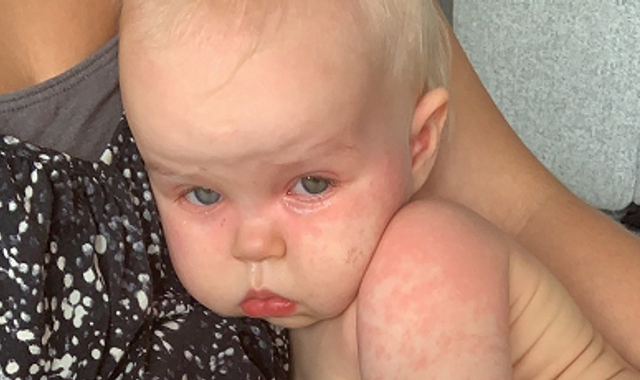Kawasaki disease: Number of children at risk rockets as doctors urge plasma donors to come forward to save a life

The number of children being treated for Kawasaki disease has more than doubled in the last five years - and now the NHS has issued an urgent plea for people to donate their plasma.
A total of 706 children needed treatment for the life-threatening disorder, which is one of the leading causes of heart disease in under fives across the UK, latest annual figures from NHS Blood and Transplant (NHSBT) show.
The new statistics compare to an average of only 336 children each year needing treatment for the condition for the past five years.
Children with the illness can require immunoglobulin - a medicine made from plasma - in order to get better.
If Kawasaki disease is left untreated or it's not caught in time, it can be fatal.
"Immunoglobulin is a precious resource as it is a crucial medicine for the treatment of Kawasaki disease," said Dr Jethro Herberg, clinical reader in paediatric infectious disease, from Imperial College London.
"We absolutely need to ensure a safe supply, and members of the public who donate plasma for immunoglobulin are making a greatly needed, and much appreciated contribution."
One of those children to have received such an important donation is Bella Hessey, who developed Kawasaki disease as a baby.
Immunoglobulin saved my daughter's life
Initially misdiagnosed with an ear and throat infection, Bella went on to develop bulges in the blood vessels around her heart.
One of her arteries, which should have been 1mm to 2mm wide, was stretched to as big as 12mm.
Read more from Sky News:
Elderly man in pain put off 999 call due to NHS crisis
Inside the NHS as patients face 27-hour waits
'Emergency' vaccine surge an option if new COVID variant hits UK
Mum Abigail Baker, 26, said the right treatment made a difference for her daughter straightaway.
"The immunoglobulin's effect was instant. Straightaway, her colour came back to normal.
"By the next morning she was eating again and her fever had completely gone. It saved her life," Abigail said.
She added: "You see comments online from people all over the world trying to get hold of immunoglobulin because it's expensive.
"It's very important that people can donate again in England so we can have a more secure supply here, especially because treatment for Kawasaki disease is time restricted."
Bella fully recovered from the illness and is now a healthy three-year-old.
'Please consider donating - it could save someone's life'
Despite the importance of immunoglobulin as a treatment, only 5,850 plasma donors are currently registered - just over half of the 10,200 needed.
"There is a rising need for plasma donors to help treat life-threatening immune disorders such as Kawasaki disease. You can help by donating plasma or blood - you have a medicine in you," said Gerry Gogarty, director of Plasma for Medicines at NHS Blood and Transplant.
Plasma - the liquid part of blood - is rich in infection-fighting antibodies, which are concentrated into immunoglobulin medicine.
This stabilises the immune response and reduces inflammation.
Between 1998 and 2021, plasma from UK donors could not be used for immunoglobulin as a precautionary measure, which meant the country relied on imported immunoglobulin.
Click to subscribe to the Sky News Daily wherever you get your podcasts
However, international supplies have since come under increasing pressures and shortages.
In 2021, the government decided plasma collection for immunoglobulin should restart in England.
Now, the NHS is taking dedicated plasma donations in Twickenham, Reading and Birmingham.
"More plasma donors are needed to treat Kawasaki disease and we are working closely with NHS Blood and Transplant to boost supplies so we can provide the best possible care to patients," said health minister Neil O'Brien.
"Thank you to existing donors who have generously come forward. If you can, please consider donating blood or plasma - it could save someone's life."

 Yahoo News
Yahoo News 
